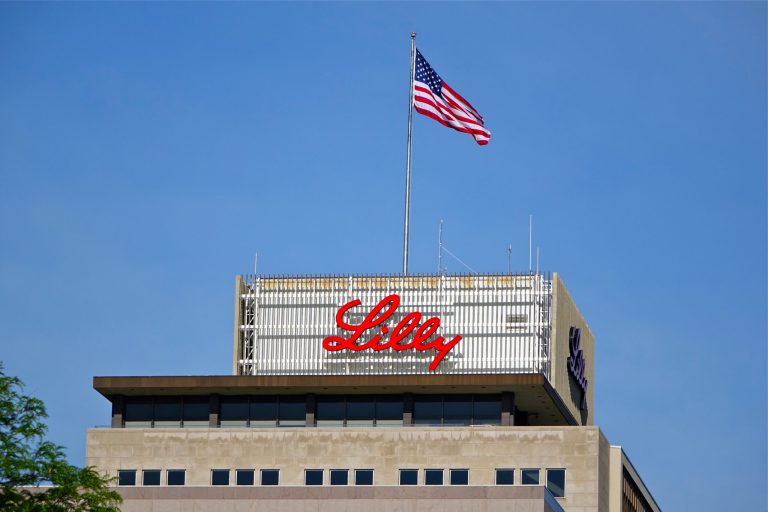Eli Lilly (LLY) reduced its fourth-quarter sales guidance by 5%, lowering expectations to $13.5 billion.
This figure is $400 million below the low end of the company’s prior guidance and includes $3.5 billion from its type 2 diabetes drug Mounjaro and $1.9 billion from its weight-loss medication Zepbound.
Wall Street’s forecasts were missed across the board.
Despite this setback, Leerink Partners analyst David Risinger maintained his positive outlook on Eli Lilly, citing promising developments in the company’s pipeline.
In a report, Risinger said,
Although this is the second quarter in a row of disappointing results, we expect 2025+ financial performance and pipeline newsflow (specifically oral GLP-1 orforglipron Ph3 results) to be encouraging.
Although Risinger trimmed his price target to $950 from $970, he reiterated an outperform rating for the stock.
Eli Lilly shares were up by 0.22% to $746.04 on Wednesday at 1:13 pm.
On Tuesday, the stock fell by 8% after the company forecast fourth-quarter sales of weight-loss drug Zepbound below Wall Street estimates.
The stock has gained 434.64% over the last 5 years, far outperforming the S&P 500 which has gained 78.42%.
Eli Lilly sales forecast: Zepbound’s sleep apnea approval
A key highlight for Eli Lilly is the FDA approval of Zepbound for treating obstructive sleep apnea.
This approval positions the drug for broader insurance reimbursement, especially for Medicare patients.
Under current rules, Medicare can only reimburse weight-loss drugs if they treat a related condition, such as sleep apnea, or reduce the risk of cardiovascular events.
The opportunity is significant, as an estimated 20 million Americans suffer from moderate-to-severe obstructive sleep apnea.
About 18.5% of the US population is over the age of 65, which means approximately 3.7 million are Medicare-eligible.
Risinger noted that this demographic could provide a substantial revenue boost for Eli Lilly, as sleep apnea treatment represents a growing focus in healthcare.
Competing with Wegovy and expanding globally
Zepbound is gaining momentum as a competitor to Novo Nordisk’s Wegovy.
In a head-to-head clinical trial, Zepbound demonstrated superior results, helping patients lose up to 20.2% of their body weight compared to 13.7% for Wegovy over 72 weeks.
This performance strengthens Zepbound’s position in the competitive weight-loss drug market.
Eli Lilly is also preparing for Zepbound’s launch in self-pay markets such as China, India, and Latin America.
These regions represent significant growth potential, particularly in China, where an estimated 400 million people are living with obesity.
However, the company has emphasized the importance of aligning manufacturing capacity with demand to avoid disruptions in established markets.
Despite the recent guidance cut and a 7% drop in stock value, analysts like Risinger remain optimistic about Eli Lilly’s long-term trajectory.
The company’s focus on innovation, strategic market expansions, and addressing unmet medical needs positions it for sustained growth in the years ahead.
The post Eli Lilly cuts Q4 sales forecast, but analyst remains bullish on stock—here’s why appeared first on Invezz

